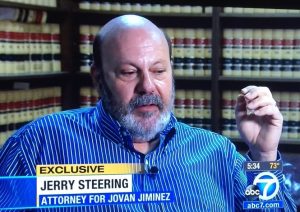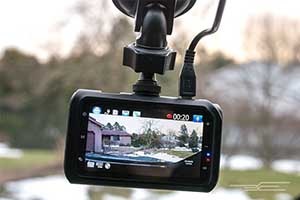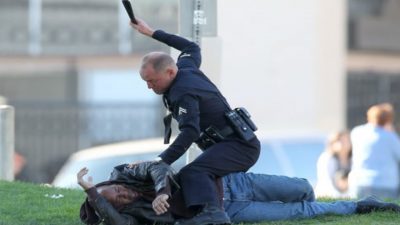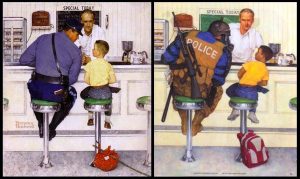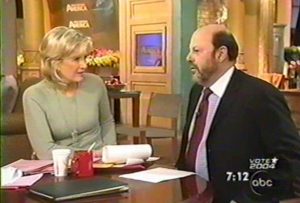Jerry L. Steering is a Police Misconduct Attorney that has many years of experience in defending drug possession and drug sales cases. Although most people arrested for drug possession or drug sales cases do, in fact, possess illegal narcotics (i.e. heroin, meth, cocaine), many really do not. Moreover, even for those persons who were actually caught possessing illegal narcotics, there may be hope to stay “out of the system.”
HOW DO I STAY OUT OF THE SYSTEM?
It’s really not that difficult to not get arrested for a drug offense; don’t do the drugs is a good start. However, the fact that you are reading this page generally means that either yourself, your spouse, your child or other person whom you care about didn’t take that advice.
| Police Misconduct Specialties: | ||
|
|
|
Although you may be guilty of drug possession and/or drug sales cases, that does not means that your criminal case can’t be won. That is not to say that we suborn perjury by putting our clients on the witness stand to lie. We don’t. However, the duty of the criminal defense lawyer is not that of public prosecutor. The defendant has the advantage of not testifying at all, and placing the state’s evidence up against the “beyond a reasonable doubt” standard for a criminal conviction. You may be guilty, but that doesn’t mean that the government can prove it. This where experience counts.
WAYS TO AVOID CONVICTIONS, EVEN IF YOU ARE GUILTY.
POLICE MISTAKES CAN RESULT IN DISMISSALS OF CRIMINAL ACTIONS FOR DRUG POSSESSION.
Fourth Amendment jurisprudence is anything but simple. Walk into a Judge’s Chambers and you often find a two volume legal treatise known as LaFave & Scott on Search and Seizure. This two volume set is restricted only to Fourth Amendment jurisprudence; to the laws of searches and seizures of persons, places and property. Judges and lawyers not only study LaFave & Scott, but other treatises and the Opinions of the Supreme Court and the various Court of Appeals; state and federal.
Because of the complexity of search and seizure jurisprudence, there enough ways for the police to “screw-up” that you just may be the beneficiary of their “screw-ups.” So, for example, Mr. Steering had a recent case where an anonymous tipster called the Seal Beach, California, Police Department and reported that a girl in a pink dress who was in front of the 7-11 Store, had heroin in her possession. The Seal Beach Police Department sent patrol cars to the scene and saw a girl dressed in pink walking down the street from the 7-11. The police stopped the girl and searched her purse; falsely claiming that she consented to a search of her purse. In the purse the police found a foil packet containing black tar heroin.
Because the detention of the girl was prompted by an anonymous tipster on a 911 call, the stop and detention of the girl was unlawful. See, Florida v. J.L., 529 U.S. 266 (2000) (police may not detain person based on anonymous tip alone.) Accordingly, Mr. Steering brought a Motion to Suppress the introduction of the heroin at trial, and the case was dismissed. So, although the girl in the pink skirt was guilty, she was able to stay out of the system. There are other ways one can “stay out of the system”, but very often, one’s lawyer needs to be able to “go after the cops” to keep you out. This is where Mr. Steering comes in.
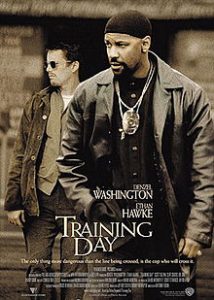 Many times, if not most, cops lie in their reports and court testimony, even when the defendant is guilty. In the Rampart Scandal in Los Angeles (the basis for the movie “Training Day“), LAPD Officer Rafael Perez and his LAPD cohorts framed the guilty, and a lot of innocents in the process, to essentially take-over the illegal narcotics sales business in the Rampart LAPD patrol area (Central Los Angeles.) These cops were dirty, and so are most cops who are narcs (narcotics officers.) They lie for a living, and they’re usually good liars. Because Mr. Steering is a Police Misconduct Specialist, he is in the best position to find the dirt on the narcs and to make them look like the liars that they are. You just can’t get this from a lawyer who only practices criminal law, and isn’t involved in Police Misconduct cases; especially civil ones against the police for monetary damages.
Many times, if not most, cops lie in their reports and court testimony, even when the defendant is guilty. In the Rampart Scandal in Los Angeles (the basis for the movie “Training Day“), LAPD Officer Rafael Perez and his LAPD cohorts framed the guilty, and a lot of innocents in the process, to essentially take-over the illegal narcotics sales business in the Rampart LAPD patrol area (Central Los Angeles.) These cops were dirty, and so are most cops who are narcs (narcotics officers.) They lie for a living, and they’re usually good liars. Because Mr. Steering is a Police Misconduct Specialist, he is in the best position to find the dirt on the narcs and to make them look like the liars that they are. You just can’t get this from a lawyer who only practices criminal law, and isn’t involved in Police Misconduct cases; especially civil ones against the police for monetary damages.
In fact, Mr. Steering litigated a civil rights false arrest lawsuit against LAPD Officer Rafael Perez (played by Denzel Washington in “Training Day”), and obtained $875,000.00 from the City of Los Angeles in that case.
IF YOU CAN’T STAY OUT OF THE SYSTEM, HERE ARE OTHER WAYS TO STAY OUT OF JAIL OR PRISON.
PC 1000 And Prop 36.
Drug offenders who aren’t being prosecuted for any crimes other than drug possession, are usually entitled to “drug diversion”; otherwise known as Cal. Penal Code § 1000, or more commonly known as “PC 1000.” Persons who get PC 1000 Drug Diversion, are required to plead guilty to drug possession, but with a “deferred entry of judgment.” By entering as guilty plea pursuant to an agreement for the deferred entry of judgment, you essentially plead guilty to drug possession charges, and agree to participate in a Court authorized drug rehabilitation program. Although you pleaded guilty, the Court withholds issuing a “judgment of conviction”, to give you a chance to complete your drug rehab program. Upon the Court receiving proof that you have successfully completed the drug rehab program, after a waiting period, you are then allowed to withdraw your guilty plea, and the charges against you are dismissed by the Court.
Thereafter, you may “lawfully” indicate in response to questions concerning your prior criminal record, that you were not arrested or granted deferred entry of judgment for the offense. The only exception to this is if you apply for a job with a public entity, or if you apply for a license issued by the government (i.e. a liquor license.)
If you “crap out” of the PC 1000 program, and the Court won’t reinstate you in your PC 1000 program, you are still permitted to another drug rehab program known as Prop 36, or PC 1210. Cal. Penal Code § 1210.1 provides:
“1210.1. (a) Notwithstanding any other provision of law, and except as provided in subdivision (b), any person convicted of a nonviolent drug possession offense shall receive probation. As a condition of probation the court shall require participation in and completion of an appropriate drug treatment program. The court shall impose appropriate drug testing as a condition of probation. The court may also impose, as a condition of probation, participation in vocational training, family counseling, literacy training and/or community service. A court may not impose incarceration as an additional condition of probation. Aside from the limitations imposed in this subdivision, the trial court is not otherwise limited in the type of probation conditions it may impose. Probation shall be imposed by suspending the imposition of sentence. No person shall be denied the opportunity to benefit from the provisions of the Substance Abuse and Crime Prevention Act of 2000 based solely upon evidence of a co-occurring psychiatric or developmental disorder. To the greatest extent possible, any person who is convicted of, and placed on probation pursuant to this section for a nonviolent drug possession offense shall be monitored by the court through the use of a dedicated court calendar and the incorporation of a collaborative court model of oversight that includes close collaboration with treatment providers and probation, drug testing commensurate with treatment needs, and supervision of progress through review hearings. In addition to any fine assessed under other provisions of law, the trial judge may require any person convicted of a nonviolent drug possession offense who is reasonably able to do so to contribute to the cost of his or her own placement in a drug treatment program. “
You get three chances under Prop 36 (Penal Code Section 1210.1) to successfully complete the drug rehab program. If you screw-up three times (i.e. dirty drug tests, not showing-up for classes), the Court then may sentence you to jail or state prison. However, if you do complete the drug rehab program, you will be allowed to withdraw your guilty plea, and the criminal drug case against you will be dismissed.
AM I ELIGIBLE FOR DEFERRED ENTRY OF JUDGMENT?
A defendant charged with the certain narcotics offenses that are set forth in Cal. Penal Code § 1000(a) who also meets the following eligibility requirements, may be given a deferred entry of judgment:
the defendant must have no conviction for any offense involving controlled substances before the currently charged offense,
the charged offense must not have involved a crime of violence or of threatened violence,
there must not be any evidence of a violation relating to narcotics or restricted dangerous drugs other than violations of the sections listed in Section 1000(a),
the defendant’s record must not indicate that probation or parole has ever been revoked without thereafter being completed
the defendant has not been in either a diversion or deferred entry of judgment program within five years before the charged offense, and
the defendant has no prior felony convictions within five years before the charged offense.
If you’ve been charged with a drug offense, the Law Offices of Jerry L. Steering can help you.
Jerry L. Steering

